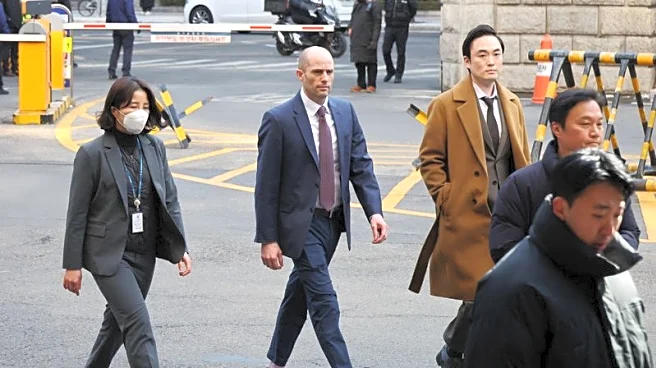Rapid Read • 7 min read
U.S. and Chinese officials have concluded two days of trade talks in Stockholm, aiming to extend a 90-day tariff truce established in May. The discussions, described as constructive, focused on economic issues, rare earths, and the potential for a future meeting between President Trump and Chinese President Xi Jinping. Despite the positive tone, no major breakthroughs were announced, leaving the decision to extend the truce to President Trump. The talks come as the truce is set to expire on August 12, raising concerns about the potential for renewed tariff escalations that could impact global supply chains and financial markets.
AD
The outcome of these talks holds significant implications for global economic stability. The U.S.-China trade relationship is crucial, given China's role as a major supplier of rare earths, essential for various industries including technology and defense. The potential expiration of the tariff truce could lead to increased tariffs, affecting global markets and supply chains. The decision rests with President Trump, whose previous trade deals with the EU and Japan have already influenced international trade dynamics. The talks also highlight ongoing tensions between the U.S. and China over economic models and national security concerns.
A decision from President Trump on whether to extend the tariff truce is expected soon. Another round of talks between U.S. and Chinese officials is likely within 90 days, focusing on refining agreements related to rare earths. The possibility of a meeting between Trump and Xi Jinping later in the year remains, although Trump has denied actively seeking such a meeting. The International Monetary Fund has flagged the potential rebound in tariff rates as a major risk to global growth, emphasizing the importance of a resolution.
AD
More Stories You Might Enjoy














